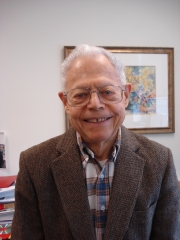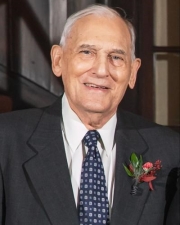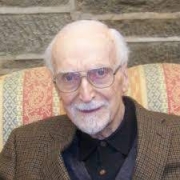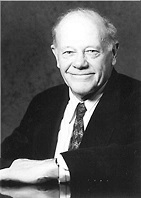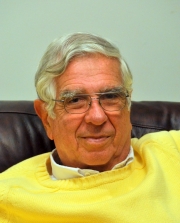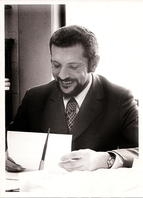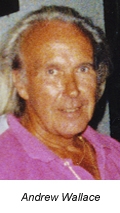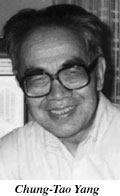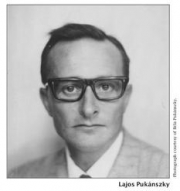Murray Gerstenhaber passed away peacefully on February 21, 2024, at the age of 96. Gerstenhaber was best known for his contributions to theoretical physics with his discovery of Gerstenhaber algebra. The recipient of the prestigious Steele Prize for Seminal Contribution to Research in 2021 for papers he had written in 1963 and 1964, the significance of Dr. Gerstenhaber’s work was not appreciated until late in his career.
Gerstenhaber received his B.S. from Yale University in 1948, even though he spent 18 months in the Army from 1945 to 1947 working in Berlin in ground transportation and teaching classes in higher mathematics at a university the United States had established there. He was a proud veteran and often told stories about his experiences as a young man in the Army. Following his graduation from Yale, Gerstenhaber studied at the University of Chicago beginning in 1948 and received his Ph. D. in 1951 where his advisor was A. (Abraham) Adrian Albert and his mentor was André Weil. Gerstenhaber engaged in postdoctoral study at Harvard from 1951 to 1952, and at the Institute for Advanced Study in Princeton, New Jersey from 1952 to 1953, where he was an assistant to Hermann Weyl.
Gerstenhaber began teaching in the Department of Mathematics of the University of Pennsylvania in 1953, rising quickly to the position of full professor, and retired in 2011 as a Professor Emeritus and the longest-serving tenured faculty member in the University’s history. His research focus areas were Algebraic Deformation Theory, Structure of Algebras and Quantum Groups. Gerstenhaber made significant contributions to theoretical physics, notably his discovery of Gerstenhaber Algebra while at Penn. He was an active member of the Penn academic community, serving as chair of the Mathematics Department, and subsequently as chair of the Faculty Senate. According to the Mathematics Genealogy Project, Gerstenhaber was a dedicated teacher who developed 17 students and 69 descendants. He was also active in broader mathematical circles and was a founder of the Association of Members of the Institute for Advanced Study (AMIAS), a Fellow of the American Association for the Advancement of Science, and an Inaugural Fellow of the American Mathematical Society.
Ever intellectually curious, Gerstenhaber spent his sabbatical as a first-year student at the Law School of the University of Pennsylvania, earning his J.D. in 1973, and becoming a member of the Pennsylvania bar. Interested in probabilistic inferences in law, he was a lecturer at the University of Pennsylvania Carey Law School, and taught the first course of its kind to show how statistical evidence could be used defensively in criminal trials. Consistent with his academic pursuits, Dr. Gerstenhaber was interested in social justice and a long-standing member of the American Civil Liberties Union. His legacy as a pioneering mathematician and esteemed educator will continue to inspire generations to come.
Gerstenhaber married Ruth Zager in 1956. He was supportive of her career as a physician when women were not typically professionals. He was a jogger as early as the 1970s, enjoyed classical music and bad puns. He is survived by his son David, daughter Rachel, son-in-law Alex, granddaughters Amanda, Arielle, Elana, and Mikaela, and grandsons Alexander, Joshua, and Dylan. His older son Jeremy James died in 2001, and his wife Ruth died in 2020.

 Department of Mathematics
Department of Mathematics